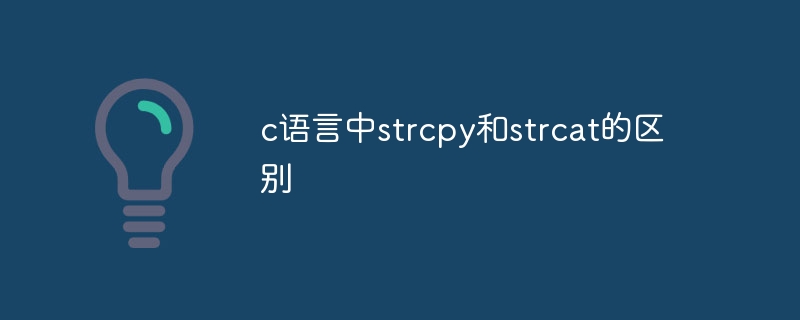strcpy copies a string to another string, while strcat appends a string to another string. The main differences include: different purposes, different dst parameter processing, and different security considerations.

The difference between strcpy and strcat
In C language, strcpy and strcat are both string manipulation functions. But they differ in functionality and how they are used.
strcpy
- Function: Copy one string to another string.
- Format: char strcpy(char dest, const char *src);
Parameters:
- dest: The destination character array to copy the string to.
- src: The source string to be copied.
- Return value: Target string dest.
strcat
- Function: Append one string to another string.
- Format: char strcat(char dest, const char *src);
Parameters:
- dest: The target character array to which the string is to be appended.
- src: The source string to append.
- Return value: Target string dest.
Main difference
- Purpose: strcpy is used to copy a string, while strcat is used to copy a string Appended to another string.
- dst parameter: The target string in strcpy must be pre-allocated with enough space to accommodate the source string, while the target string in strcat can not be allocated space in advance.
- Safety: Strcpy may cause a buffer overflow if there is insufficient space in the destination string, but strcat will not.
Usage scenarios
- strcpy: When you need to create a copy of the source string.
- strcat: When one string needs to be appended to another string, and the target string does not have enough space to accommodate the appended string.
The above is the detailed content of The difference between strcpy and strcat in c language. For more information, please follow other related articles on the PHP Chinese website!






